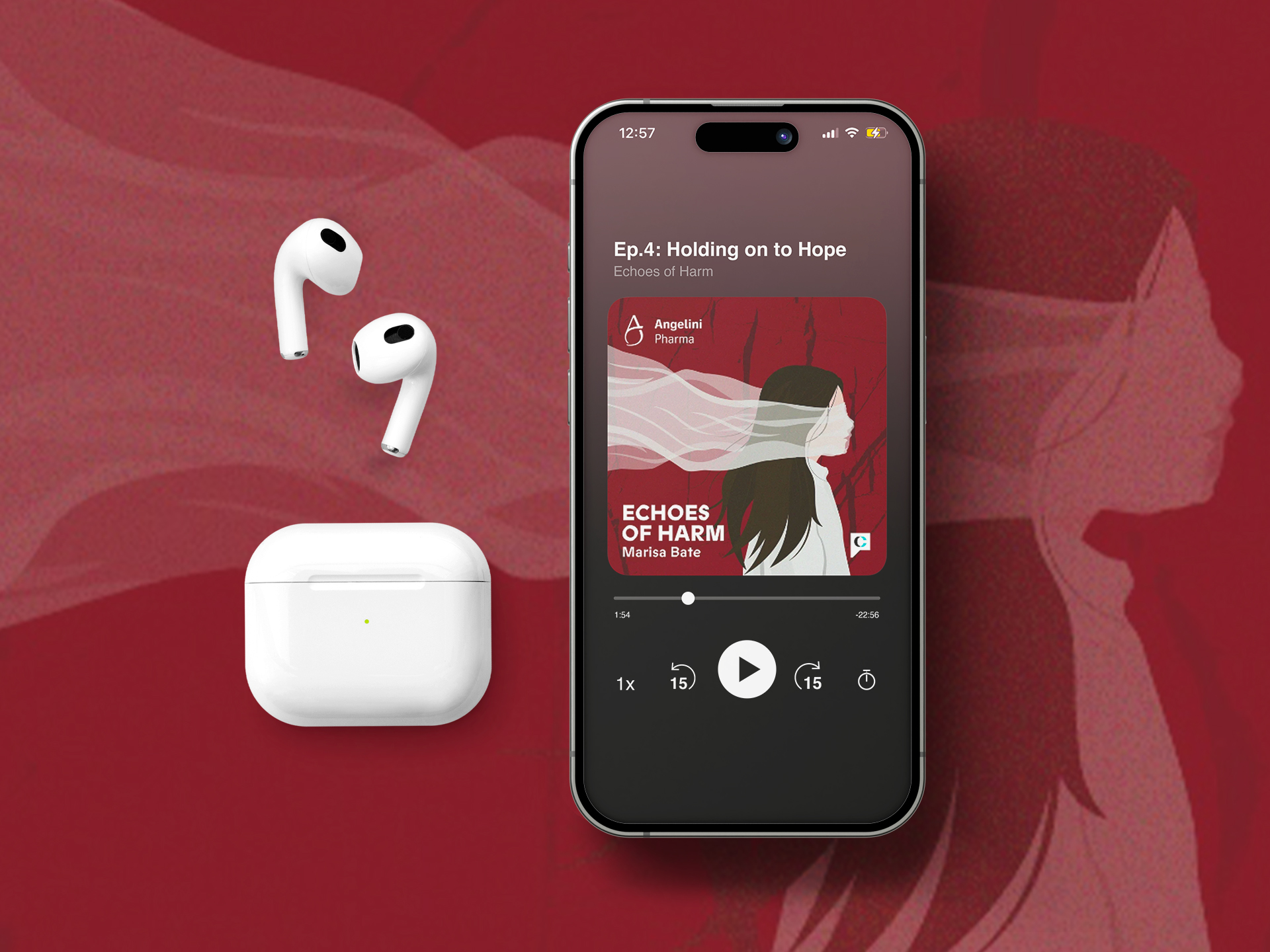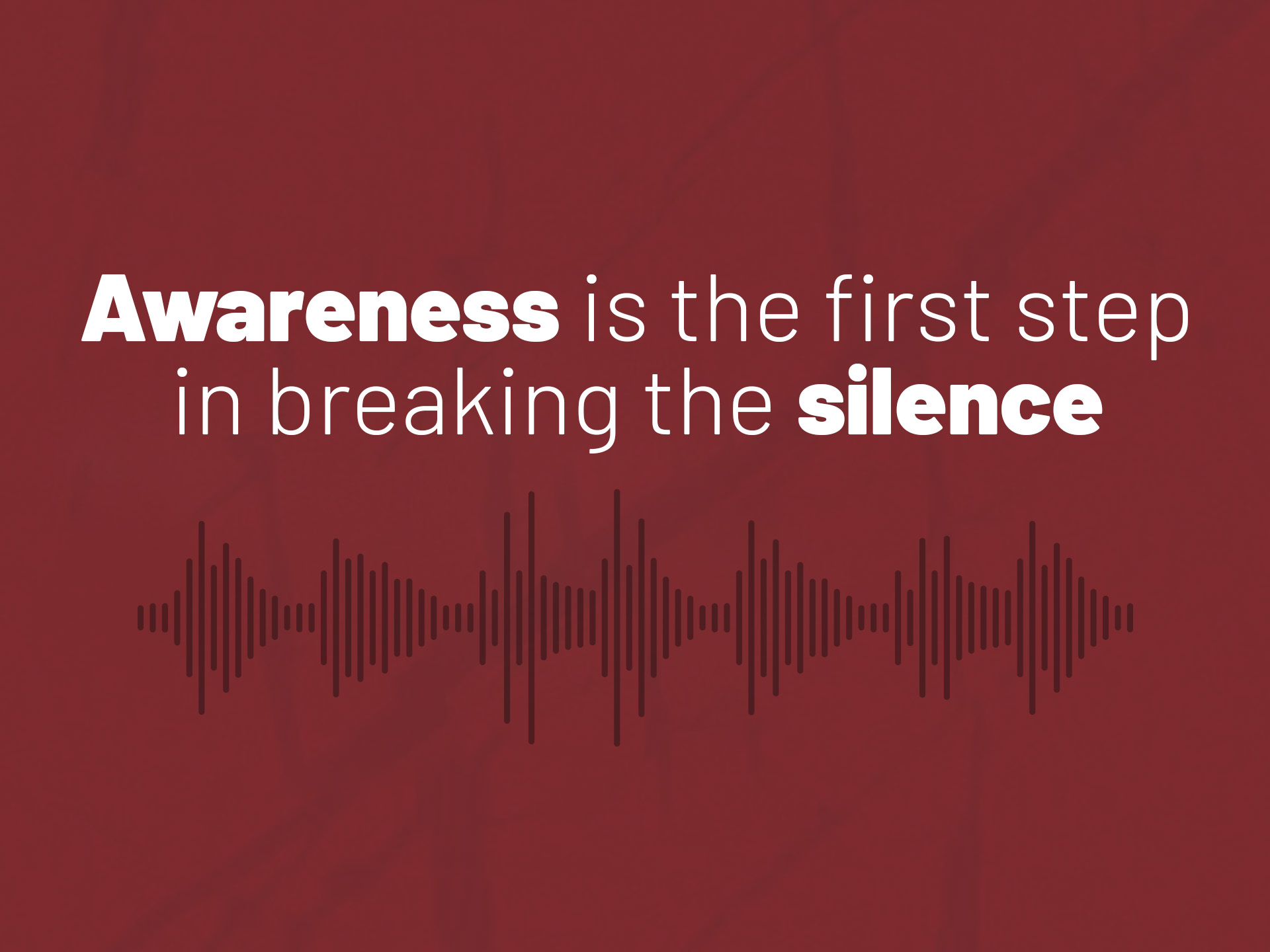"Echoes of Harm": gender-based violence told by those who have experienced it
Share

Produced by Chora Media in collaboration with Angelini Pharma, Echoes of harm is a podcast that invites questions, insights and reflection on the roots of a phenomenon that is difficult to eradicate, whose causes are intertwined with complex social, cultural and psychological dynamics. With a narrative that stimulates critical thinking, the series offers a holistic look at the phenomenon of gender-based violence, challenging listeners to confront a reality that needs more voice.
Structured in four episodes, the podcast presents a collective narrative that weaves together the firsthand testimonies from women survivors, family members of victims of feminicide, and multidisciplinary insights from psychiatrists and activists. It is a journey that explores the different forms in which violence manifests itself, with a special focus on its impact on mental health, an aspect too often overlooked, but crucial to understanding its scope and deeper consequences.
The impact of gender-based violence on mental health
Marisa Bate, a British author and journalist long committed to issues concerning women's rights and conditions—known for her work in The Guardian and The Times—delivers a well-researched, clear, and compelling narrative. Her storytelling crosses borders and diverse contexts, offering a broad and tangible perspective on an issue that affects society as a whole, without exception.
With an authoritative, thoughtful, and empathetic approach, the narrator weaves together different stories, all tied by the same thread: violence against women. In this context, deconstruction is the key word. Each episode provides tools to recognize the many faces this phenomenon can take, understand its dynamics, and analyze the mechanisms that enable its perpetuation.
Every voice, contribution, and reflection in the series helps to paint a clear—yet far from reassuring—picture: that of a Europe still struggling to protect its female citizens, where the safeguarding of women's rights remains partial and often ineffective.

One in three European women
has experienced at least one form of violence in her lifetime
This figure leaves no room for interpretation and calls into question the preventive measures taken so far, which are often limited to emergency interventions without acting on the structural causes of the phenomenon.
Alongside this critical landscape, a front of resistance emerges. The podcast shines a light on the daily work of networks of professionals, activists, and survivors who strive to offer more structured and concrete responses: psychological support services, community-based initiatives, prevention strategies, and educational pathways focused on respect, awareness, and shared responsibility. It is a collective project that challenges the normalization of violence and helps sustain a public space where the issue can be addressed with expertise and foresight.
The trauma left by violence does not end in the event itself,
but manifests itself in emotional disorders, anxiety, depression and
relationship difficulties that can persist for years.
In the pursuit of sustainable prevention, the need to update communication strategies becomes clear—embracing languages and formats that can engage new generations in the spaces they inhabit, both physical and digital. The goal is to spark conscious and active reflection, while also placing strong emphasis on their emotional well-being.
Every educational and preventive intervention must take into account the psychological consequences of gender-based violence, not only on the victims but also on their families and the broader social fabric. The stigma, the resulting "silent consent," and the lack of adequate support contribute to deep wounds that risk hindering or slowing down the healing process and the reclamation of one's psycho-physical identity. In this context, Echoes of Harm represents a powerful and, indeed, necessary tool for raising awareness.
Central to this perspective is the voice of Gino Cecchettin, who shares the tragedy experienced by his family and the path of awareness raising he is pursuing through the Foundation dedicated to his daughter, Giulia Cecchettin, a victim of feminicide. The in-depth exploration of the psychiatric and psychological aspects is provided by contributions from two international experts. Anita Riecher-Rössler, professor emerita of Psychiatry and Psychotherapy at the University of Basel and editor of the journal Archives of Women's Mental Health, explores the traumatic effects and long-term consequences of gender-based violence on mental health. Isabella Berardelli, associate professor of Psychiatry at the Sapienza University of Rome, on the other hand, explains how it is possible to start a treatment process, emphasizing the importance of qualified and ongoing psychological support.
The narrative is also enriched by the voices of activists and journalists who have been engaged for years on the European front: Rosa Logar, co-founder of the WAVE network, retraces more than 40 years of struggle for women's rights; Stefanie Knaab, a young activist and survivor, shares her own experience, marked by a sense of shame and the difficult process of liberation from her attacker. Finally, offering a more rooted perspective in the Italian context is Francesca Berardi, journalist and author of Chora Media, who joins Marisa Bate in constructing a deeply human narrative thread.
As the name of the podcast itself suggests, the consequences of gender-based violence extend beyond the boundaries of time and space. But precisely for this reason, it is crucial to draw a boundary that marks the beginning of change. The series operates on two complementary levels: on one hand, the urgency of understanding whether and how a true path to healing can be undertaken, both psychologically and physically; on the other, the collective responsibility to build social, cultural, and institutional conditions that make this path concretely possible.
Do we have the tools, resources, and will to really address the complexity of this phenomenon? More importantly, are we able to imagine-and build-a society that can prevent, protect and transmit trust?
 Angelini Industries
Angelini Industries





